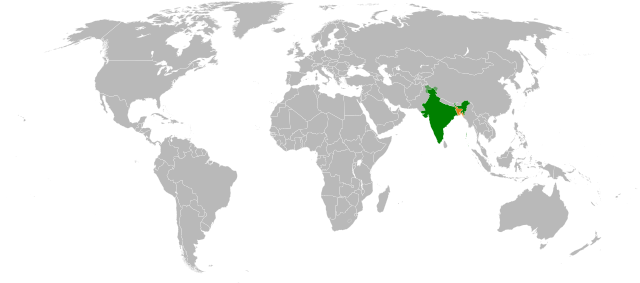
The request signals a deepening of Bangladesh’s reliance on China, particularly in light of its economic ambitions and the regional challenges posed by India’s increasing influence in the northeast. The focus of these tensions lies in the area of trade and infrastructure projects, areas where China has made significant inroads in Bangladesh through initiatives such as the Belt and Road Initiative .
While official statements have not clarified the full details of the request, experts suggest that Bangladesh's overture to China may be part of a broader diplomatic strategy to balance its relations with India. Over the past few years, tensions between Bangladesh and India have escalated, especially concerning the sharing of river waters and the treatment of ethnic minorities in India’s northeast, which has indirectly affected Bangladesh’s stability.
Bangladesh’s leadership appears to be positioning itself strategically in the face of what it perceives as an imbalanced regional power dynamic. The Chinese-backed infrastructure projects in Bangladesh are expected to grow further if China agrees to extend its current agreements. This development follows a series of diplomatic exchanges between the two nations, in which both sides have increasingly emphasised their growing cooperation.
Bangladesh’s growing economic ties with China are in stark contrast to its traditional reliance on India. Historically, the two South Asian neighbours have had complex relations, with periods of cooperation and tension, particularly around border issues and water-sharing agreements. The Bangladesh-China relationship, on the other hand, has blossomed over the last decade, with China emerging as one of the largest foreign investors in Bangladesh’s economy. The proposed extension would further strengthen this economic collaboration, potentially positioning Bangladesh as a key player in China’s broader South Asian strategy.
However, India’s reactions to Bangladesh’s increasing alignment with China are being closely monitored. India has historically maintained a dominant influence in South Asia and has been wary of China’s growing presence in the region, especially in countries that share borders with India. Analysts suggest that India may view Bangladesh’s request for a Chinese extension as a veiled challenge to its influence, particularly in the sensitive northeastern regions that both countries share.
In addition to economic and political factors, the strategic location of Bangladesh in the Bay of Bengal makes it a significant player in regional maritime trade routes, further enhancing its importance in the context of global geopolitics. The Chinese extension could bolster Bangladesh’s maritime and infrastructural development, giving it a stronger voice in regional affairs. For China, the prospect of extending its influence in Bangladesh aligns with its wider ambitions to enhance its trade and connectivity across the Indian Ocean region.
At the heart of this request is the ongoing competition for influence in the Indo-Pacific region, where both China and India seek to expand their respective spheres of influence. While China has actively courted Bangladesh through investments and economic partnerships, India has sought to maintain its dominance in the region, a balancing act that is becoming increasingly difficult as both superpowers vie for control.
The Bangladesh-China relationship is also influenced by the regional security landscape. China has pledged significant support to Bangladesh in terms of security and military cooperation, including providing advanced military hardware and engaging in joint exercises. These moves signal a clear intent to strengthen the security ties between the two countries, which could have ripple effects on the strategic equilibrium in South Asia.
Bangladesh’s request for an extension can also be seen in the context of its internal development goals. With China’s financial backing, Bangladesh aims to accelerate its infrastructure projects, which are seen as crucial to its development. These projects include transport corridors, energy infrastructure, and port developments that would enhance Bangladesh’s standing as a regional economic hub.
Despite the potential benefits for Bangladesh, the move could have far-reaching consequences for the regional security architecture. India is likely to scrutinise any extension of Chinese influence in the region, particularly given the rising tensions in the northeastern states of India, where ethnic and political struggles have led to instability. India’s concerns are heightened by the presence of large Chinese investments in infrastructure in Bangladesh, which could alter the balance of power in the region.
The prospect of Bangladesh’s growing alignment with China has also raised alarms within the United States and other Western nations, who view China’s expanding influence in South Asia with suspicion. The United States, in particular, has historically supported India in its efforts to counterbalance China’s rise in the region, and it is likely to monitor closely how Bangladesh’s diplomatic relations unfold in the coming months.
